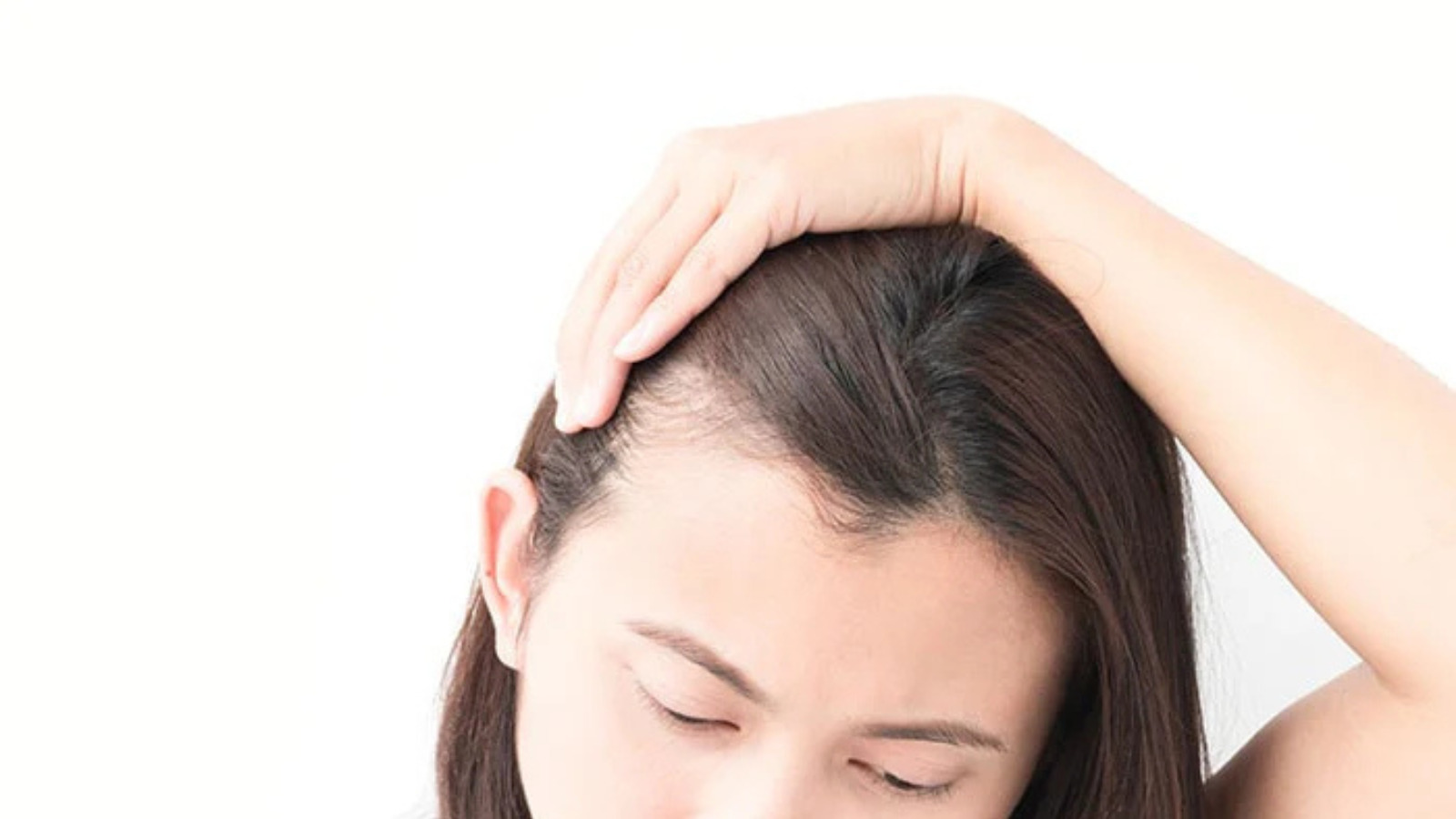Hair thinning after childbirth is a common concern for many new mothers. You may notice excessive hair fall around 2–4 months postpartum—even if you had thick, healthy hair during pregnancy. This condition, though temporary, can be stressful and affect your confidence.
In this blog, Dr. Abhishek Malviya, trusted dermatologist and hair specialist at Radiant Skin Clinic, Indore, explains the real causes behind postpartum hair loss and offers science-backed solutions to manage and reverse it.
Why Does Hair Fall Increase After Delivery?
During pregnancy, elevated estrogen levels keep hair in the growth (anagen) phase, making it thicker and more voluminous. After childbirth, estrogen levels drop sharply, causing a large number of hairs to shift into the resting (telogen) phase, which leads to:
Sudden hair shedding
Thinning at the crown and temples
Excess hair in combs, pillows, and showers
This condition is called Telogen Effluvium, and it usually begins 2–4 months postpartum and can last up to 6–9 months.
Is It Permanent?
No—postpartum hair loss is usually temporary, but the regrowth may vary from person to person. However, in some cases, underlying issues like thyroid imbalance, nutritional deficiency, or PCOS may delay recovery or worsen hair thinning.
To rule out deeper causes, consult our Dermatologist in Indore at Radiant Skin Clinic for a proper scalp evaluation and blood work analysis.
Dermatologist-Backed Solutions for Postpartum Hair Thinning
1. Nutritional Support
After delivery, your body may be deficient in iron, zinc, biotin, and vitamin D, all of which are essential for hair regrowth.
Include leafy greens, lentils, nuts, and lean proteins
Take doctor-prescribed supplements for targeted recovery
2. Use Mild, Hair-Friendly Products
Avoid harsh shampoos and opt for gentle, sulfate-free cleansers. Use lightweight serums with peptides or caffeine to support hair growth.
3. PRP Therapy (Platelet-Rich Plasma)
This regenerative therapy uses your own platelets to stimulate inactive hair follicles and improve density. At Radiant Skin Clinic, we offer advanced PRP and GFC (Growth Factor Concentrate) therapies designed for postpartum hair loss.
4. Scalp Care
Healthy scalp = healthy hair. We provide deep scalp cleansing, mesotherapy, and custom scalp serums that promote regrowth and prevent further shedding.
5. Address Hormonal or Thyroid Imbalances
Postpartum thyroid issues can contribute to prolonged hair loss. Our clinic performs thorough diagnostics to ensure no underlying hormonal disruptions are overlooked.
If hair thinning becomes visible or patchy, early intervention is key. For severe cases, explore our Best Hair Transplant in Indore consultation options for long-term hair restoration.
Home Tips to Support Hair Regrowth
Avoid tight ponytails or frequent heat styling
Get adequate sleep and manage postpartum stress
Use a microfiber towel to reduce breakage
Be gentle while detangling wet hair
When Should You See a Dermatologist?
If your hair fall:
Continues beyond 6 months postpartum
Is leaving noticeable bald patches
Is accompanied by scalp irritation or flaking
Occurs alongside fatigue or hormonal symptoms
…it’s time to consult a qualified expert.
Schedule a consultation with Dr. Abhishek Malviya, renowned Dermatologist in Indore, to get a customized postpartum hair restoration plan that works for you.
Final Thoughts
Postpartum hair thinning is common—but you don’t have to accept it as permanent. With timely intervention, the right treatments, and expert care, your hair can regain its fullness and strength.
Visit Radiant Skin Clinic, Indore, to discover safe, personalized, and effective solutions for postpartum hair loss from one of the most trusted dermatologists in the region.



